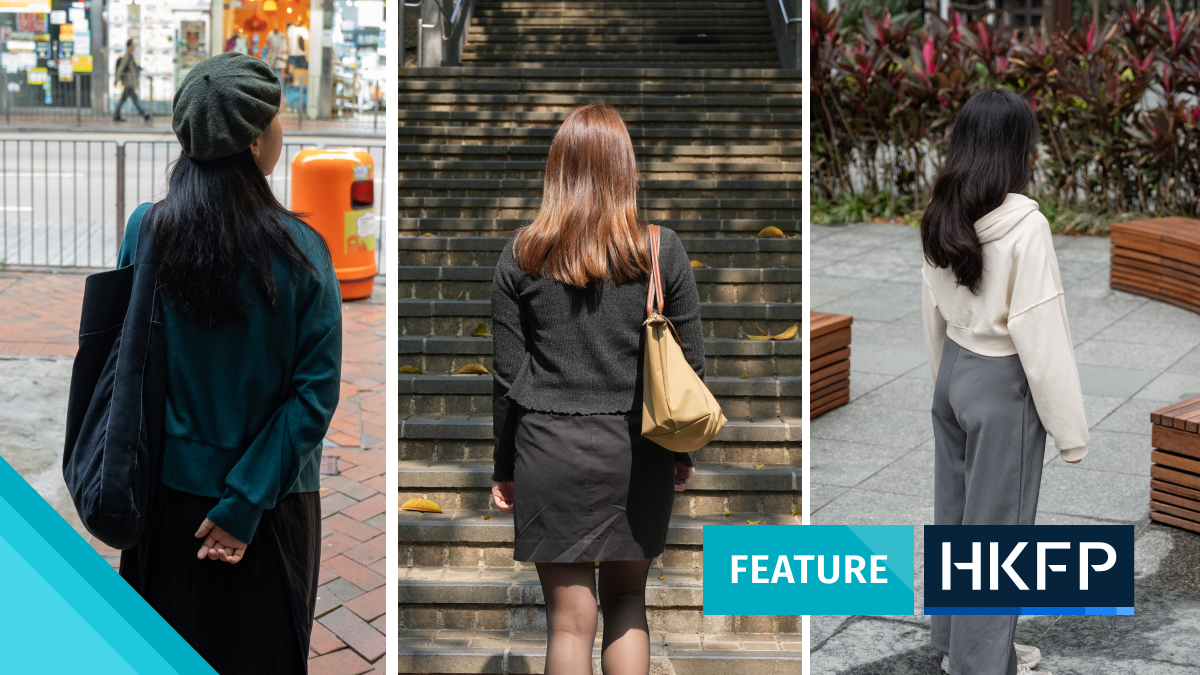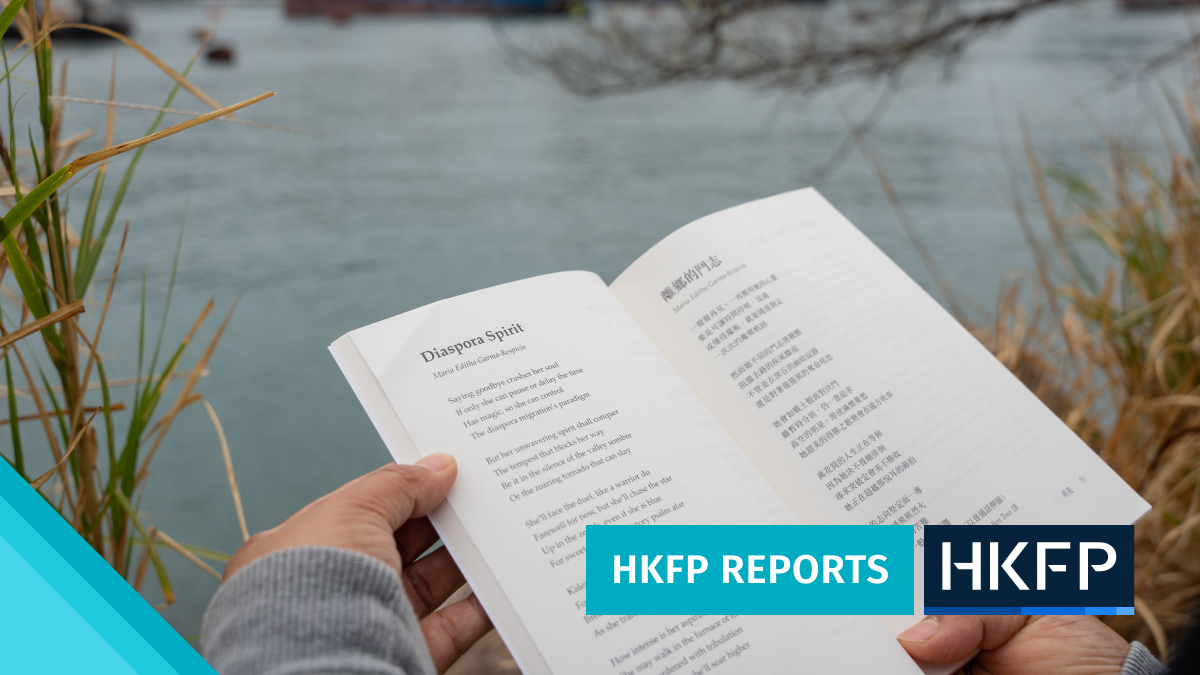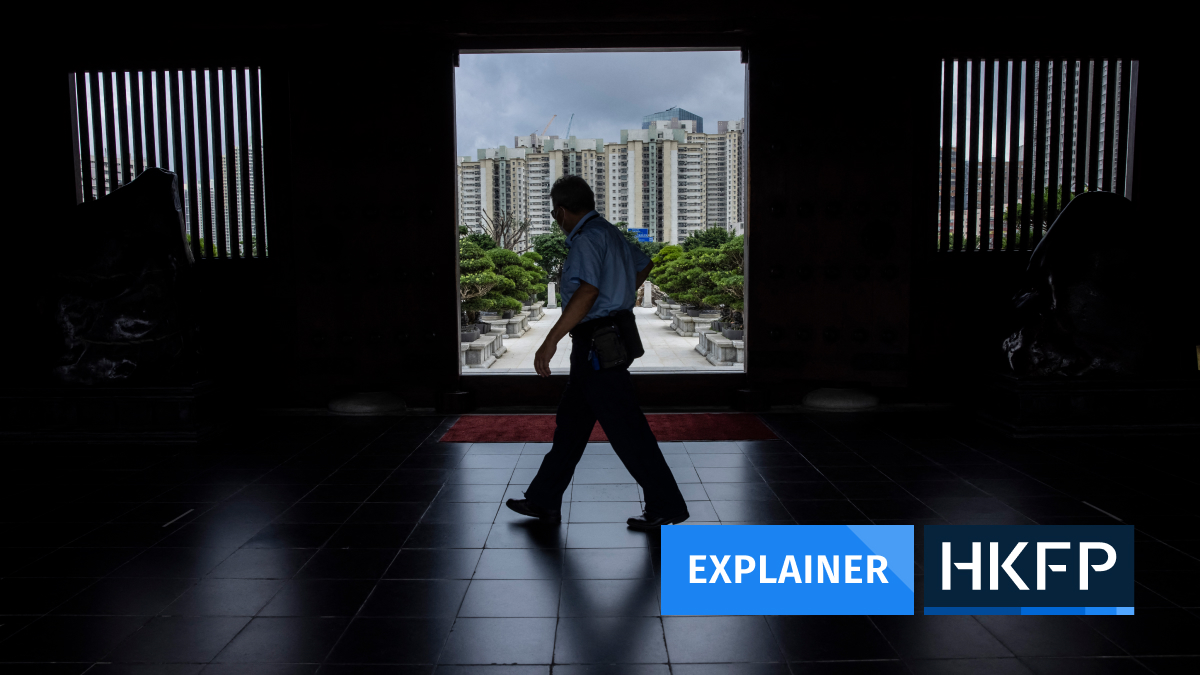Taipei, Taiwan
Thousands packed Taipei’s Ketagalan Boulevard on Thursday night to show their support for Taiwan’s ruling Democratic Progressive Party (DPP), two days before 19 million eligible voters decide who will lead the democratic island for the next four years.

Among the estimated 120,000 people present was Dean, a 21-year old student, who told HKFP he was there because he thought DPP presidential candidate William Lai Ching-te was “the right choice.”
“People in the past gave their life so that now we have this,” Dean said, gesturing at the crowd around him. “I think we have to use our vote to keep it this way.”
Taiwan first held democratic elections in 1996, after emerging from one-party rule under the Kuomintang (KMT), and decades of martial law – during which tens of thousands died.
The opposition KMT has evolved significantly since, but remains more socially conservative and promotes warmer ties and stronger trade partnerships with Beijing. The DPP, which has been in power for two four-year terms, has favoured US relations, resulting in increased Chinese military incursions around the island.
This year there is a third hopeful vying to become the island’s next leader: Ko Wen-je of the Taiwan People’s Party. He has positioned himself firmly between the DPP and the KMT, and has succeeded in garnering significant youth support thanks, in part, to his massive social media following.
Dean said many of his classmates had expressed an interest in voting for Ko, but he appreciated the way that the DPP had positioned Taiwan on the global stage. “[Over] the last eight years, I have seen Taiwan become more international, more people know where is Taiwan, and who we are.”

Over the course of more than three hours, the crowd, most of them much older than Dean, rose again and again from red plastic stools in time with rousing music, transforming the 10-lane road into a sea of waving pink and green flags, peppered with banners proclaiming “Keep Taiwan Free” and rainbow LGBTQ flags bearing DPP insignia.
Lai told the crowd that he would ensure security, democratic governance and incorporate opposition opinions: “Peace depends on our own strength and should not be contingent on the invader’s goodwill… What [Taiwanese people] are fighting against are not each other, but our common predicament,” he said, according to state-backed Focus Taiwan.
‘I don’t trust Kuomintang’
Former civil servant Emily Hsu, 71, told HKFP: “I think the young generation didn’t see how hard we [fought for] democracy from the Kuomintang. They are too close to mainland China… I don’t trust Kuomintang – no way.”
From the stage, which was positioned in front of the dramatically lit Presidential Office Building, DPP heavyweights – including former culture minister Cheng Li-chiun and Premier Chen Chien-jen – delivered speeches and Kaohsiung rockers Fire Ex led a rendition of political anthem Stand Up Like a Taiwanese.

The band played at President Tsai Ing-wen’s inauguration in 2016, and has lent its support to issues such as the student-led Sunflower Movement, same-sex marriage and promoting a uniquely Taiwanese identity.
It was Tsai, who will leave office after serving the maximum two terms, that elicited the loudest cheers of the evening – any frustrations attached to her incumbent administration cast aside by those in the crowd. She was flanked on stage by DPP presidential candidate Lai Ching-te and his running mate Hsiao Bi Khim, Taiwan’s former representative to the US.

By the time Lai appeared on stage, Wei, 28, had been waiting for several hours to see the man who may become his next president. Wei, who worked in real estate and was at the rally with a colleague, said he was there because he was not yet sure who to vote for on Saturday.
“I want to listen to [the candidates] first before I decide,” he said.
‘We never want to start a war’
While Taiwan’s last general election played out against the backdrop of protests in Hong Kong, for 2024 it is conflicts in Ukraine and Gaza that cast their shadows amid a growing threat from Beijing.
US intelligence agencies have said Beijing will attempt to make a move on Taiwan – which China considers a breakaway province to be unified by force, if necessary – and that China’s leader Xi Jinping had told his military to be prepared to invade by 2027. US President Joe Biden has vowed, four times, to defend Taiwan from attack, though it is uncertain as to whether Washington would directly involve itself in a conflict.

One rally-goer, Hank Chan, 31, however, told HKFP that he was not too concerned about a potential war: “China’s economy is not too strong – a little weak – so, I think Taiwan [feels] more confident.”
His friend, Diego Chiu, added that he hoped the DPP would maintain the status quo in order to keep the peace, albeit without Taipei being dragged into the US “military complex.”
“I only want the US as a deterrent, instead of being the back-seat driver exploiting… people fighting each other,” the 35-year-old said.
As for military threats, Hsu, the retired civil servant, said she was not worried: “Democratic countries – we never want to start a war… the USA, all the democracies, will help us.”
Additional reporting: Tom Grundy
Dateline:
Taipei, Taiwan
Support HKFP | Policies & Ethics | Error/typo? | Contact Us | Newsletter | Transparency & Annual Report | Apps
Help safeguard press freedom & keep HKFP free for all readers by supporting our team

Original reporting on HKFP is backed by our monthly contributors.
Almost 1,000 HKFP Patrons made this coverage possible. Each contributes an average of HK$200/month to support our award-winning original reporting, keeping the city’s only independent English-language outlet free-to-access for all. Three reasons to join us:
- 🔎 Transparent & efficient: As a non-profit, we are externally audited each year, publishing our income/outgoings annually, as the city’s most transparent news outlet.
- 🔒 Accurate & accountable: Our reporting is governed by a strict Ethics Code. We are 100% independent, and not answerable to any tycoon, mainland owners or shareholders. Check out our latest Annual Report, and help support press freedom.
- 💰 It’s fast, secure & easy: We accept most payment methods – cancel anytime, and receive a free tote bag and pen if you contribute HK$150/month or more.
MORE Original Reporting
HKFP has an impartial stance, transparent funding, and balanced coverage guided by an Ethics Code and Corrections Policy.
Support press freedom & help us surpass 1,000 monthly Patrons: 100% independent, governed by an ethics code & not-for-profit.










